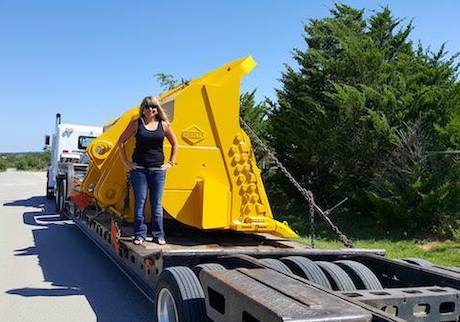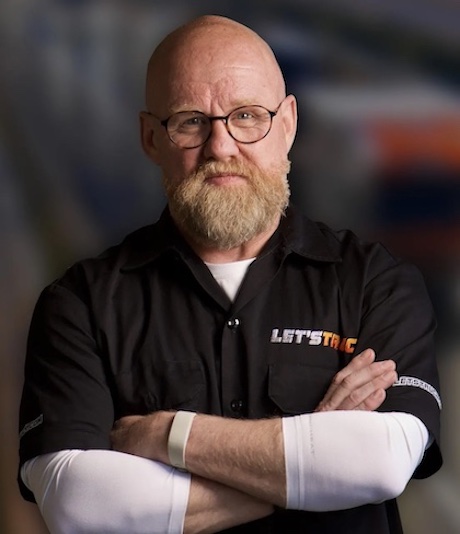
Trucking Wheels of Fortune
February 19, 2021
Trucking Through Trouble
March 4, 2021The Trucking Business I
Transactional vs. Relational
Excerpt from Kevin Rutherford’s interview with NATCO VP Cori Eckley for the “Trucking Business & Beyond” radio show, February 19, 2021 on SiriusXM Radio Channel 146.

Cori Eckley: Communication
Kevin Rutherford: When I go to these owner-operator events, the absolute biggest focus: everybody talks about customers. Customers, and service, and value to your customers. That’s the main focus of almost everything. But in this industry, if you hang out in the owner-operator world, you almost never hear that term, ever. And I don’t hear it a lot in trucking. I went to your website to see what you guys have. When I look at your About page, the word “customer” is everywhere. Everything’s about the customer. Isn’t that what business is about?
Cori Eckley: The customer is the heart and soul of our business, and the reason we get up every day is to provide the solutions in conjunction with our vendors, the carriers, for product-moving from Point A to Point B or a construction project.
Kevin: And when you say your vendors, the carriers and owner-operators, that would then make you their customer, right?
Cori: Absolutely.
Kevin: And honestly, I know you have great relationships with carriers and owner-operators, so I’m not talking about those people right now. But you also get those one-and-done calls. Somebody just happened to see a great load you had; they call. Do you really feel like most of them treat you like customers?
Cori: Some of them do. Some of them don’t. There’s a lot of focus on just the transaction. “Let me get this completed so I can move on to the next transaction.”

Kevin Rutherford: Road Dog Trucking
Kevin: Yeah. And most of our conversation is just about the rate and the transaction itself. It’s very transactional. It’s not relational.
Cori: Correct.
Kevin: Yeah. And that’s what I want to change. Because I think it would benefit all of us. Here’s the thing: the group that it would benefit the most are the owner-operators, and they’re the ones most resistant to it. That’s what kind of frustrates me. They would be the biggest beneficiary of this. If they learn that the way you succeed in this business, or any business, is you provide the most value you can possibly provide to your customer, you can’t go wrong. But if you’re not talking about the customer, if you’re not identifying the customer, if that isn’t your focus, then you’re probably not really providing them much value. You’re just kind of completing the transaction.
Cori: Right. I would say we’re seeing more traction in this area of the complete details. My focus within our operation is to make sure the driver has every detail possible: a name, a phone number, hours. Any specifics that go along with the transaction. And I’m hearing feedback from my operations staff: they thank us for that to make their job a little bit easier. There’s less frustration by providing that communication directly to them.
Kevin: Yeah. I love that. And in a sense, I think that’s absolute good business. But it almost kind of points out how backwards we can be sometimes when it’s the customer focusing on helping their vendor. That’s good. It’s good business. But I want to see more of the opposite. I want to see more of the carrier, the vendor saying, “What can I do to provide more value to you?” And I think the first thing that has to happen is just a mind shift. Because it’s such a foreign concept in this industry.
What I tend to hear from owner-operators is them complaining all day long about their customers. The broker did this, the broker did that. The shipper did this, the shipper did that. I don’t really hear them talking about the whole point of why they’re in business, which is to serve a customer. So, I want to start talking about it more. Like you said, it does exist. It’s out there. I think it’s pretty rare. I do believe that there’s a huge group of owner-operators who would do this more if they were just exposed to it more.
Cori: I agree. I think if it was reciprocated and they had that experience with all their customers, maybe it would become second nature to them and they would get on that mindset and continue to carry their business forward in that fashion.


